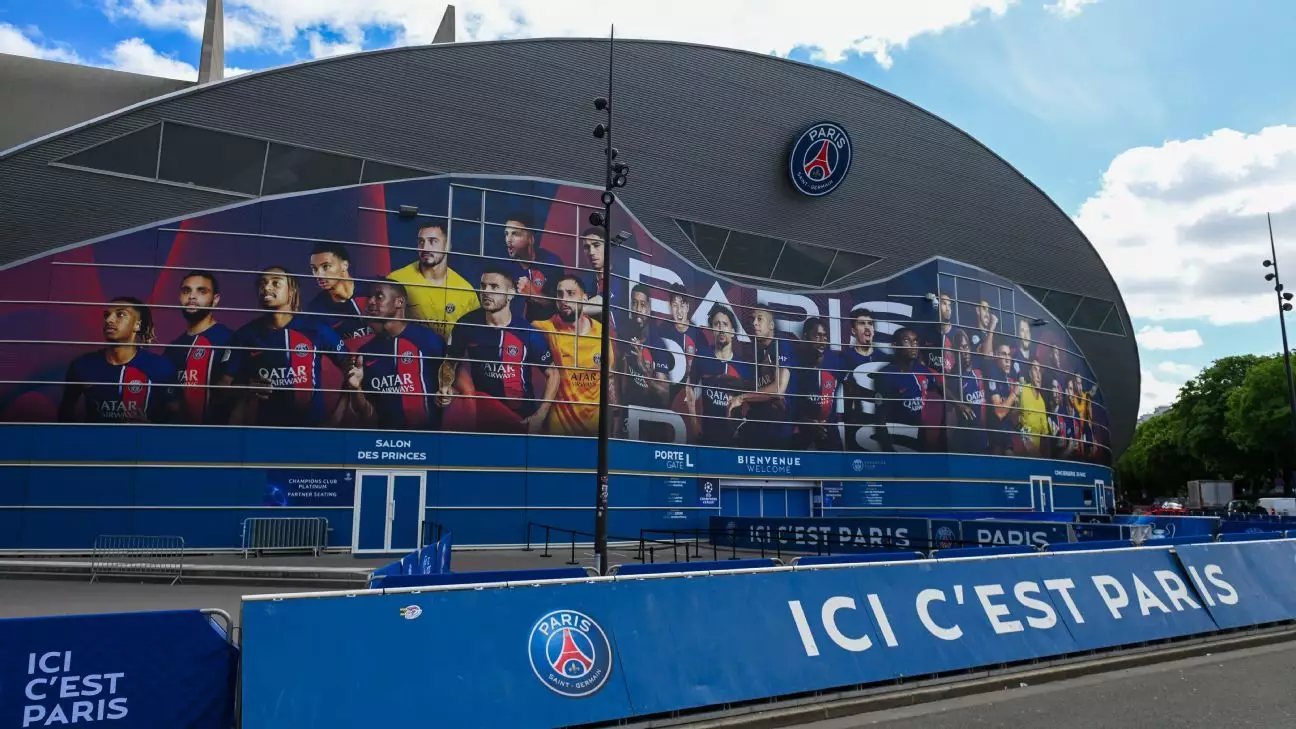The investment landscape of Qatar in France, particularly through its key financial entities, is undergoing notable changes. Qatar’s sovereign wealth fund, the Qatar Investment Authority (QIA), alongside Qatar Sports Investments (QSI) — the majority owner of Paris Saint-Germain (PSG) — is reportedly scaling back its investment interests in the country. This shift signifies a broader reevaluation of priorities by Qatari investors who have traditionally viewed France as a cornerstone of their European strategy.
According to reliable sources, the transformation in Qatar’s investment approach has been a gradual process over the past year. Contrary to public speculation linking this adjustment to the legal scrutiny faced by PSG’s president, Nasser Al-Khelaifi, it seems that the decision stems from a variety of factors, including perceived systemic challenges in the French market. Adverse media portrayals, discontent with the French justice system, and political friction appear to be influencing Qatari sentiment towards deepening financial involvement in France. While Al-Khelaifi’s legal troubles are indeed a subplot, Qatari officials assert that these matters are separate from their overarching strategic reassessment.
Al-Khelaifi’s recent legal predicament involves serious allegations of complicity in corruption and abuse of power that are not directly related to his leadership at PSG. The implications of such charges can be profound, especially concerning reputational risk for QSI and QIA. A close source denounced the accusations against Al-Khelaifi as misleading, arguing that the allegations stem from a wider context of his public visibility rather than any wrongdoing. Such situations often draw public and media scrutiny, leading to a tarnished image, which could further deter investment.
Qatar’s caution in this arena reflects a broader trend where reputational risk plays a critical role in influencing investment decisions. Historical precedence suggests that foreign investments can be destabilized by political upheaval or adverse media coverage. Therefore, Qatari interests might be exercising heightened vigilance as they navigate the complexities of investing in a politically charged environment.
Strategic Shifts and Future Prospects
Despite the cooling of investments in France, Qatar’s financial entities remain active in diversifying their investment portfolio. Notably, the partnership of QSI with American investment fund Arctos, which saw the acquisition of a minority stake in PSG by NBA star Kevin Durant, emerges as a tactical step towards inviting external partnerships. This could indicate an intention to build a more resilient business structure through collaboration with external investors while regaining capital outlays previously absorbed in French assets.
Moreover, QIA’s choice to disinvest from certain French holdings while targeting investments in Portugal — exemplified by the minority stake acquisition in SC Braga — underscores a notable shift in strategy that prioritizes markets perceived to be more favorable or aligned with long-term goals. France, once a priority market, may now be viewed through a lens of caution, with diminished financial commitment gradually becoming a hallmark of Qatari investment in the region.
Significantly, beIN Media Group’s parallel conversations regarding investments in Saudi Arabia reveal not only a quest for more fruitful markets but also a strategic pivot amidst a challenging environment in France. The broadcasting sector, particularly concerning Ligue 1 rights, appears to be impacted by this shift in investment strategy. Reduced spending on media rights indicates an evolving relationship between Qatari firms and the French market, which is no longer seen as the bedrock of their operations.
In reflection, the cooling of Qatar’s investment interests in France encapsulates a complex interplay of legal, political, and market factors. As Qatar recalibrates its global investment strategy, it beckons broader implications not only for PSG but for the fabric of French professional football and foreign investment in the region. Whether this trend will solidify into a definitive withdrawal or merely a strategic retreat remains to be seen, but the evolving dynamics promise significant changes in the investment landscape across French enterprises in the foreseeable future.


Leave a Reply